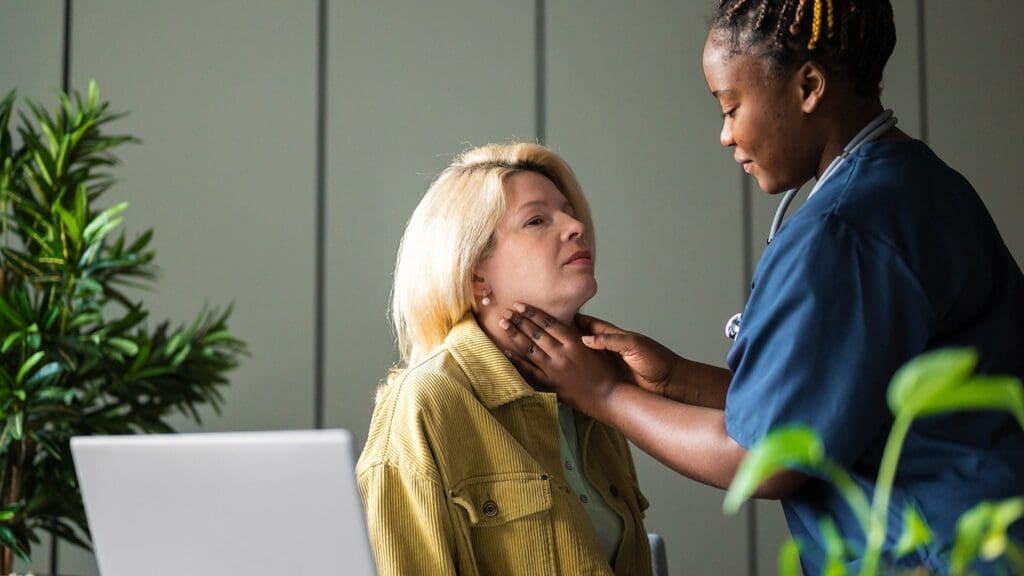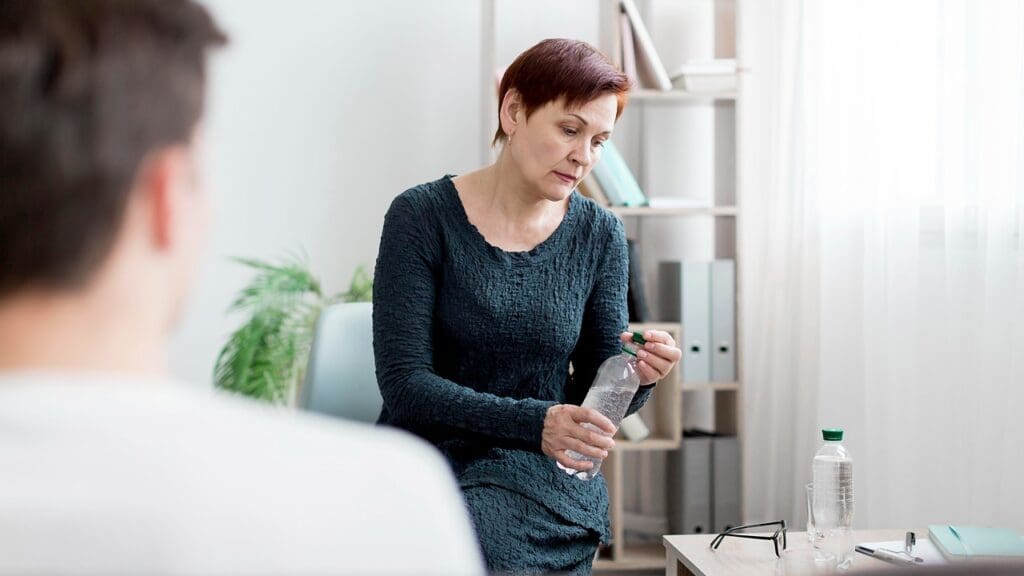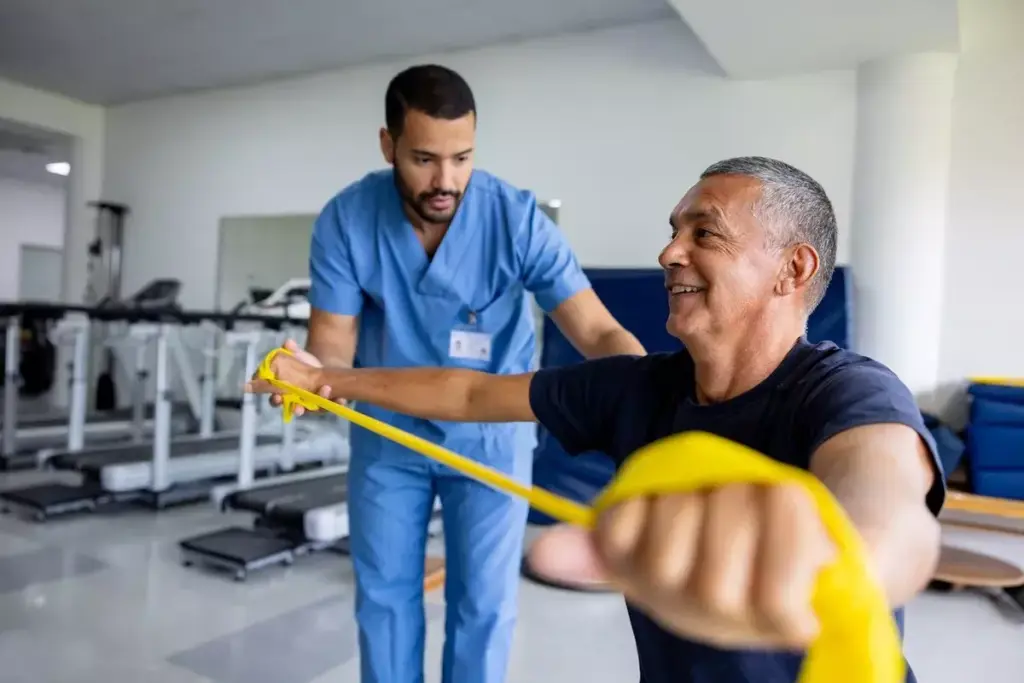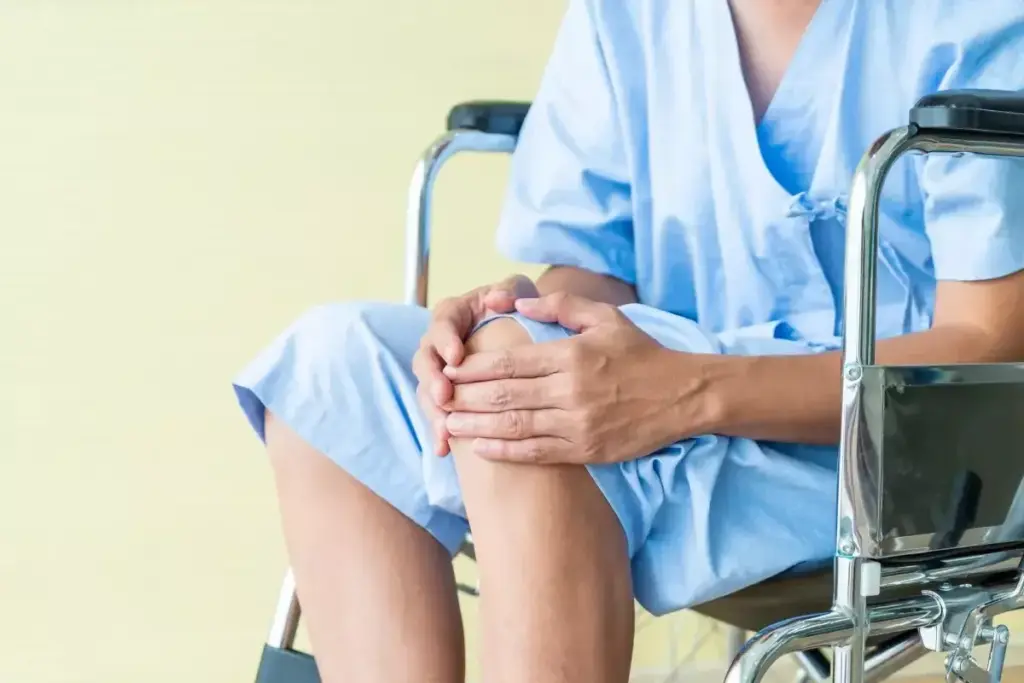
Patients with lymphoma face tough times with chemotherapy. Many are looking into natural treatments to help. New studies show promise in treatments like bacterial immunotherapy and nanoparticles.
At Liv Hospital, we aim for patient-centered care. We use the latest in cancer treatment. Our goal is to offer holistic treatment for lymphoma and support patients fully.
Key Takeaways
- Exploring natural treatments beyond chemotherapy for lymphoma.
- Innovative approaches like bacterial immunotherapy and nanoparticles.
- Patient-centered care at Liv Hospital.
- Holistic treatment options for complete care.
- Empowering patients in a supportive setting.
The Lymphoma Journey: Understanding Your Diagnosis and Treatment Options

Getting a lymphoma diagnosis can change your life. It makes you look into different treatment options. Lymphoma is a cancer of the lymphatic system. It has many subtypes, each needing its own treatment plan.
Types of Lymphoma and Their Characteristics
Lymphoma is split into Hodgkin lymphoma (HL) and non-Hodgkin lymphoma (NHL). NHL is more common. It’s divided into subtypes based on the lymphocyte type and other factors.
| Type of Lymphoma | Characteristics |
|---|---|
| Hodgkin Lymphoma (HL) | Has Reed-Sternberg cells, usually starts in one lymph node group. |
| Non-Hodgkin Lymphoma (NHL) | A diverse group with different aggressiveness and treatment responses. |
| Diffuse Large B-Cell Lymphoma (DLBCL) | The most common NHL subtype, aggressive but treatable. |
Conventional Treatment Approaches
Chemotherapy is key in treating lymphoma. It’s often paired with radiation, targeted therapy, or immunotherapy. The treatment choice depends on the lymphoma type, stage, and patient health.
Why Patients Seek Alternatives to Chemotherapy
Chemotherapy works well but can have tough side effects. Some patients look for other treatments to manage their disease and improve life quality.
These alternatives might include diet changes, herbal supplements, mind-body therapies, and traditional medicine. It’s important for patients to talk to their doctors about these options. This ensures they’re safe and work well with standard treatments.
The Science Behind Alternative Therapy for Lymphoma

Exploring alternative therapies for lymphoma requires understanding the science behind them. These treatments, including holistic medicine, are gaining attention. They might help alongside traditional cancer treatments.
Complementary vs. Alternative Approaches
It’s key to know the difference between complementary and alternative therapies. Complementary therapies work with traditional treatments. Alternative therapies replace them. For lymphoma patients, making this choice is important.
Mechanisms of Action in Natural Treatments
Studies on natural treatments, like bacterial immunotherapy and nanoparticles, show promise. For example, some medicinal mushrooms might boost the body’s fight against cancer cells.
A study on bacterial immunotherapy suggests it could help with different cancers. More research is needed, but it gives hope to lymphoma patients looking for alternative treatments.
“The integration of complementary and alternative medicine into cancer care is becoming increasingly important as patients seek more holistic approaches to treatment.”
The Importance of Evidence-Based Decision Making
When looking at alternative therapies, patients need solid evidence. Analyzing data helps understand if these treatments work and are safe.
| Therapy Type | Mechanism of Action | Evidence Level |
|---|---|---|
| Medicinal Mushrooms | Immunomodulation | Preclinical studies |
| Bacterial Immunotherapy | Stimulates immune response | Clinical trials |
| Nutritional Therapy | Dietary interventions | Observational studies |
In conclusion, while alternative therapies for lymphoma are promising, patients should talk to doctors. This ensures safe and effective treatment plans.
Herbal Medicine: Nature’s Pharmacy for Lymphoma Support
Herbal medicine is a valuable part of treating lymphoma. It has been used for centuries to help health and well-being. Recent studies show it can help lymphoma patients too.
Medicinal Mushrooms
Medicinal mushrooms like Turkey Tail, Reishi, and Shiitake are getting attention. Turkey Tail mushroom helps the immune system and can improve survival rates. Reishi mushroom helps reduce stress and boosts well-being.
Powerful Plant Compounds with Anti-Cancer Properties
Other plants also have anti-cancer properties. Curcumin in turmeric fights inflammation and is antioxidant. Green tea extracts have catechins that slow cancer cell growth. These can boost the effect of traditional treatments.
Formulation, Dosing, and Safety Considerations
Herbal medicine can be beneficial but needs careful use. Formulation and dosing are key to its safety and effectiveness. Always talk to a doctor before adding herbal supplements to your treatment. It’s also important to choose high-quality herbal products.
Herbal medicine can be a helpful addition to lymphoma treatment. But, it’s important to work with healthcare professionals. This ensures the best results and safety.
Nutritional Therapy and Dietary Interventions
Nutritional therapy is a holistic way to manage lymphoma and improve well-being. It supports conventional treatments and boosts the body’s defenses.
Anti-Inflammatory and Immune-Supporting Diets
Eating fruits, vegetables, and omega-3 fatty acids can reduce inflammation and boost the immune system. Anti-inflammatory diets can lessen treatment side effects. Adding foods like berries and leafy greens to your diet is recommended.
Key Nutrients and Supplements for Lymphoma Patients
Some nutrients and supplements are beneficial for lymphoma patients. Vitamin D is key for immune system health. Omega-3 fatty acids and probiotics are also good for their anti-inflammatory effects.
| Nutrient | Benefit | Food Sources |
|---|---|---|
| Vitamin D | Immune system regulation | Fatty fish, fortified dairy products |
| Omega-3 Fatty Acids | Anti-inflammatory effects | Fatty fish, flaxseeds, walnuts |
| Probiotics | Gut health support | Yogurt, kefir, fermented vegetables |
Metabolic Approaches Including Fasting Protocols
Fasting and calorie restriction may help in cancer treatment, including lymphoma. Some research shows that fasting protocols can make treatments more effective and reduce side effects. For more on nutritional therapy, visit Liv Hospital’s guide on what helps cancer patients live.
By adding nutritional therapy and dietary interventions to their treatment, lymphoma patients can manage their health better. This can potentially improve their outcomes.
Mind-Body Medicine: Harnessing the Power of Thought and Emotion
When dealing with lymphoma, mind-body medicine offers many ways to heal. It focuses on the connection between our thoughts, feelings, and health. This approach adds to traditional treatments, helping both body and mind.
Meditation and Stress Reduction Techniques
Meditation and stress-reducing methods are key in mind-body medicine. Mindfulness and deep breathing can lower anxiety and stress. They help us feel calm and well.
A study found these methods can also ease symptoms and improve life for cancer patients. “Mindfulness is not just a practice, it’s a way of being that can transform our experience of illness and health,” says a leading expert.
Yoga, Tai Chi, and Movement Therapies
Yoga, Tai Chi, and other movement therapies combine physical and mental practices. They improve flexibility, balance, and strength. They also reduce stress and anxiety.
For lymphoma patients, these therapies can help manage treatment side effects. They keep physical function up. We suggest adding them to a comprehensive alternative therapy for lymphoma plan.
Psychological Support and Emotional Healing Practices
Psychological support is vital in mind-body medicine. It addresses the emotional and mental effects of lymphoma. Therapies like CBT and counseling offer emotional support.
Journaling and expressive arts therapies also help with emotional healing. They let patients express and heal their feelings.
By using mind-body medicine, lymphoma patients can find alternative cures for cancer that boost their well-being. It’s important to talk to healthcare providers about these options for a full care plan.
Traditional Chinese Medicine Approaches to Lymphoma
Traditional Chinese Medicine (TCM) is gaining attention for its role in lymphoma treatment. It includes therapies like acupuncture, herbal medicine, and qigong. These can boost patient care when used with traditional treatments.
Acupuncture Benefits for Cancer Patients
Acupuncture is a key part of TCM. It uses fine needles to help the body heal itself. For lymphoma patients, it can ease pain, nausea, and fatigue from chemotherapy.
Research shows acupuncture can make life better for cancer patients. It helps lessen side effects from treatment.
Chinese Herbal Formulations for Immune Support
Chinese herbal medicine is vital in TCM for lymphoma patients. It aims to boost the immune system and lessen treatment side effects. Astragalus and Ginseng are popular for their immune-boosting properties.
These herbs are mixed in special formulas for each patient. This approach offers a holistic treatment for lymphoma that goes well with traditional therapies.
Qigong and Energy Work for Vitality
Qigong combines movement, meditation, and breathing to balance energy, or “qi.” It helps lymphoma patients by reducing stress and improving vitality. Regular qigong practice can also boost the immune system and fight fatigue.
By adding TCM approaches to care, lymphoma patients get a more complete treatment plan. This plan meets their physical, emotional, and spiritual needs. It offers a alternative medicine for lymphoma that works with traditional treatments.
Ayurvedic Medicine: Ancient Wisdom for Modern Cancer Care
Ayurvedic medicine offers a unique approach to treating lymphoma. It uses natural and holistic methods. This ancient Indian system sees cancer as a sign of body imbalance, or doshas. It aims to balance the body, mind, and spirit, helping overall health and possibly supporting traditional treatments.
Dosha-Specific Treatment Protocols
Ayurvedic treatment is tailored to each person’s unique needs. For those with lymphoma, knowing their dosha helps create personalized lifestyle and diet plans. These can improve well-being and possibly aid in cancer treatment.
| Dosha | Characteristics | Ayurvedic Recommendations |
|---|---|---|
| Vata | Air + Ether | Warm, nourishing foods; gentle exercise |
| Pitta | Fire + Water | Cooling foods; stress management |
| Kapha | Earth + Water | Light, dry foods; vigorous exercise |
Herbal Compounds and Detoxification Methods
Ayurvedic medicine uses herbs believed to fight cancer or boost the body’s defenses. It also includes detox methods like pancha karma to remove toxins.
Key Herbs in Ayurvedic Cancer Care:
- Turmeric (Curcuma longa)
- Guggulu (Commiphora mukul)
- Triphala (a blend of three fruits)
Lifestyle Modifications for Whole-Body Healing
Ayurvedic medicine stresses the role of lifestyle in health and treatment. For lymphoma patients, this might include dietary changes, stress-reducing activities like yoga and meditation, and the right amount of physical activity.
Adding Ayurvedic principles to their care plan can help lymphoma patients. It’s important to talk to healthcare providers to make sure it’s safe and works well with other treatments.
Homeopathy and Naturopathic Interventions
Homeopathic and naturopathic treatments are getting more attention for lymphoma. They help the body heal itself and can work with traditional treatments.
Individualized Homeopathic Approaches
Homeopathy treats each person, not just their illness. Homeopathic practitioners look at a patient’s health, symptoms, and unique traits to choose remedies. For those with lymphoma, homeopathy might ease symptoms and enhance life quality.
A study on homeopathic treatment for non-Hodgkin’s lymphoma found some benefits. Yet, more research is needed to fully grasp its effects (source).
Naturopathic Detoxification and Immune Support
Naturopathic medicine believes in the body’s healing power. Naturopaths use diet, supplements, and detox to boost the immune system. “Detoxification is not just about removing toxins; it’s about making the body’s cleansing better,” explains a naturopathic expert.
For lymphoma patients, naturopathy can lessen side effects from traditional treatments.
Integration with Conventional Care
It’s important for lymphoma patients to mix alternative therapies with their regular care. Open talks with healthcare providers are essential for safe and effective treatment. Combining traditional and alternative methods can lead to better health outcomes.
Exploring these alternative treatments is vital. Yet,
“The art of medicine is long, but life is short.”
This old saying reminds us of the urgent need for effective treatments. Homeopathy and naturopathy seem promising, but patients should talk to their healthcare team before starting any new therapies.
Creating Your Integrative Treatment Plan: Combining Conventional and Alternative Approaches
When you’re diagnosed with lymphoma, you might want a treatment plan that includes both traditional and alternative therapies. This mix can help manage symptoms, improve treatment results, and boost your overall health.
Communicating with Your Healthcare Team
Talking openly with your healthcare team is key when mixing traditional and alternative treatments. Share your use of alternative treatments because some might affect how traditional treatments work. It’s a good idea to keep a log of your treatments, including how much and how often, to share with your doctors.
Monitoring Progress and Adjusting Treatments
It’s important to keep an eye on how well your treatment plan is working. Watch your symptoms, energy, and overall health closely. Let your healthcare team know if you notice any changes. This helps you and your doctors make the best decisions about your treatment.
Red Flags and When to Prioritize Conventional Care
Even though alternative therapies can be helpful, there are times when traditional care is more important. Get medical help right away if you have severe symptoms like trouble breathing, a lot of pain, or unexplained bleeding. Always follow your healthcare team’s advice on traditional treatments. These are backed by science and proven to work.
By working closely with your healthcare team and staying informed, you can make a treatment plan that supports your health and well-being during your lymphoma journey.
Conclusion: Empowered Decision Making for Your Lymphoma Journey
We’ve looked into different ways to treat lymphoma, beyond just chemotherapy. We talked about natural treatments like herbal medicine and nutritional therapy. We also mentioned mind-body medicine and traditional healing methods like acupuncture and Ayurvedic medicine.
It’s important for patients to know about their treatment choices. This knowledge helps them make decisions that fit their personal beliefs and values. By understanding the good and bad of natural treatments, patients can choose what’s best for them.
We suggest patients look into alternative cancer treatments. They should work with their doctors to create a treatment plan that works for them. This plan might include both traditional and alternative therapies.
Patients can take charge of their lymphoma journey. This way, they can face their illness with confidence and hope. We’re here to support patients in their quest for the best health and well-being.
What are alternative therapies for lymphoma?
Alternative therapies for lymphoma include herbal medicine and nutritional therapy. They also include mind-body medicine, traditional Chinese medicine, and Ayurvedic medicine. Homeopathy and naturopathic interventions are also options. These can be used with chemotherapy.
Why do patients seek alternative therapies for lymphoma?
Patients seek alternative therapies to manage symptoms and improve quality of life. They may also want to enhance treatment outcomes. Some look for holistic care or to reduce chemotherapy use.
Are alternative therapies for lymphoma evidence-based?
The evidence for some alternative therapies is mixed. We stress the importance of making decisions based on evidence. Patients should talk to their healthcare providers about the benefits and risks.
Can I use alternative therapies alongside conventional chemotherapy?
Yes, many alternative therapies can be used with chemotherapy. But, it’s important to tell your healthcare team about any alternative therapies. This ensures safe and effective use.
What are some examples of herbal medicine used for lymphoma?
Medicinal mushrooms like turkey tail and reishi are being studied for lymphoma treatment. Other plant compounds with anti-cancer properties are also being explored.
How can nutritional therapy support lymphoma treatment?
Nutritional therapy can boost immune function and manage side effects. Anti-inflammatory diets and supplements may improve treatment outcomes. Metabolic approaches like fasting can also be beneficial.
What is mind-body medicine, and how can it help lymphoma patients?
Mind-body medicine includes meditation, yoga, and psychological support. These practices can reduce stress and improve well-being. They may also support conventional treatment.
Can traditional Chinese medicine approaches help with lymphoma treatment?
Traditional Chinese medicine, including acupuncture and herbal medicine, may manage symptoms. It can improve quality of life and support conventional treatment.
What is Ayurvedic medicine, and how can it support lymphoma care?
Ayurvedic medicine focuses on individualized treatment and herbal compounds. It emphasizes lifestyle modifications. It may support overall health and complement conventional treatment.
How can I create an integrative treatment plan that combines conventional and alternative approaches?
To create an integrative plan, talk openly with your healthcare team. Monitor your progress and know when to prioritize conventional care. Work closely with your providers to develop a personalized plan.
Are there any risks associated with using alternative therapies for lymphoma?
Alternative therapies can have risks, like interactions with medications or side effects. It’s important to discuss risks and benefits with your healthcare providers.
How can I find a qualified practitioner for alternative therapies?
Ask your healthcare team for recommendations or seek experienced practitioners. Make sure any practitioner is licensed and reputable.
References
- Healthline: https://www.healthline.com/health/lymphoma/alternative-treatments
- National Center for Biotechnology Information (NCBI) / PMC: https://pmc.ncbi.nlm.nih.gov/articles/PMC3154703/
- Bristol Myers Squibb (BMS): https://www.bms.com/life-and-science/science/goal-treat-lymphoma-without-chemotherapy.html










